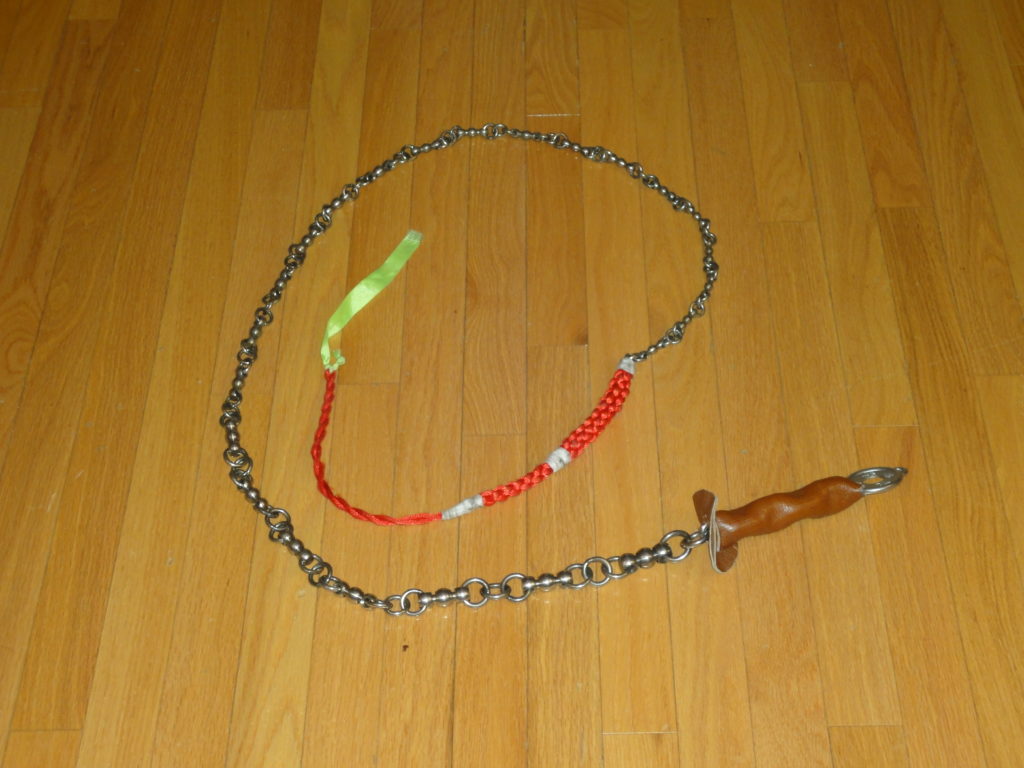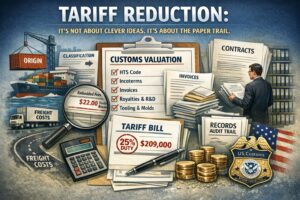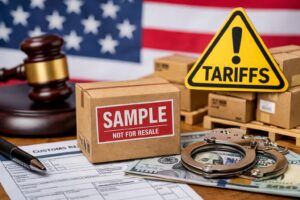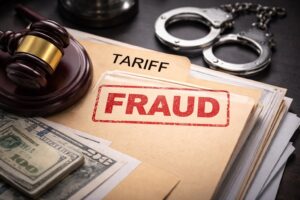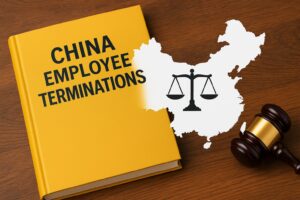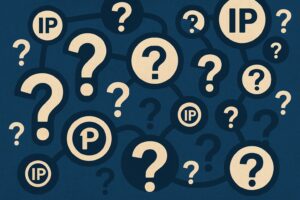The U.S. Government has been cracking the whip on products illegally transshipped from China. Chinese companies and U.S. importers of their products often tell me they are not concerned about U.S. Antidumping (“AD”) and Countervailing Duty (“CVD”) orders because they can “just get around those orders by transshipping our products to Malaysia, Vietnam, Philippines, Sri Lanka, India, [or some other country] before sending them on to the United States.” Their plan is to relabel the products with a new country of origin and then export the products to the US free of AD and CVD duties, without US Customs and Border Protection (“CBP”) ever being the wiser. Wrong.
Not only has CBP become expert at discovering such evasions, but the civil and criminal penalties when caught have become very harsh. Importers that knowingly falsely label the country of origin on their imports are subject to significant fines and penalties under 19 USC 1592 and to criminal prosecution under 18 USC 542 (import by using false statement) and 18 USC 545 (smuggling). Lying about a product’s country of origin can subject you to twenty years in Federal prison.
Immigration and Customs Enforcement (“ICE”) has conducted criminal investigations against a number of products under AD and CVD orders, including honey, saccharin, citric acid, lined paper products, pasta, polyethylene bags, shrimp, catfish, crayfish, garlic, steel, magnesium, pencils, wooden bedroom furniture, wire clothing hangers, ball bearings and nails. Many of these investigations have led to criminal convictions and large fines and penalties. U.S. importers have been sent to prison for bringing in Chinese products, such as honey, garlic, wooden bedroom furniture and wire clothing hangers, by means of false Country of Origin statements so as to evade US AD and CVD orders.
Many Chinese companies do not realize that U.S. Customs laws can be used to go after not only US importers that have filed the false documents at Customs, but also after Chinese companies and anyone from those companies involved in setting up the transshipment. In one case, a Chinese seafood executive was arrested at a seafood show in Belgium based on a US extradition warrant for evasion of a US AD order. He ended up spending six months in a Belgian prison.
The real hammer against evasion of US AD and CVD orders, however, is the False Claims Act (“FCA”). The FCA (31 U.S.C. § 3729) allows people or companies to file “qui tam” lawsuits against individuals or companies that directly or indirectly defraud the Federal government. Through qui tam lawsuits, informants and “whistleblowers” may recover triple damages on the government’s behalf. Anyone who knows of the fraud, including a competitor company may file a qui tam lawsuit.
Your competitors and your importers and your own employees are the most likely to initiate a qui tam lawsuit against you, but sometimes it is just someone who learned of what you are doing. Because the person or company that brings such an action can be awarded millions and even tens of millions of dollars, the incentive to file is huge. If you want to get a better idea of just how lucrative these lawsuits can be, do a Google search for lawyers looking to take on qui tam lawsuits.
The qui tam relator’s lawsuit is filed confidentially and is not served on the defendants, but on the US Government. The US Government then determines whether to intervene and pursue the action or settle the matter with the defendant. If the U.S. Government intervenes, it takes on primary responsibility for the case. If the U.S. Government decides not to intervene, the relator may dismiss the lawsuit or pursue the lawsuit on its own.
Under the False Claims Act, relators and the government can look back as far as ten years after the date on which the violation was committed. When looking at ten years of imports subject to antidumping orders with potential rates of over 300%, the amounts being evaded are usually enormous. In one False Claims Act we handled, the antidumping duties evaded were over $80 million. When those duties were tripled, and additional penalty sums were added for false statements and attorneys’ fees, the complaint against numerous importers exceeded $300 million. Our original complaint has resulted in an ongoing penalty action for $80 million against one U.S. importer, with the relator entitled potentially to $12 to $24 million of this sum.
With increasing opportunities to collect such massive sums, the U.S. Government, private companies and individuals have huge incentives to bring more False Claims Act cases against those who transship to evade U.S. duties or tariffs. If you are exporting to the United States or importing into the United States, you should be wary of the hammer against transshipment—the False Claims Act.
Update: The international trade lawyers at my law firm represented a number of private party plaintiffs involved with this lawsuit where Univar transshipped saccharin “manufactured in China . . . through Taiwan to evade a 329 percent antidumping duty that applied to saccharin from China.” The government and the relators got a combined $62.5 million in this case.










